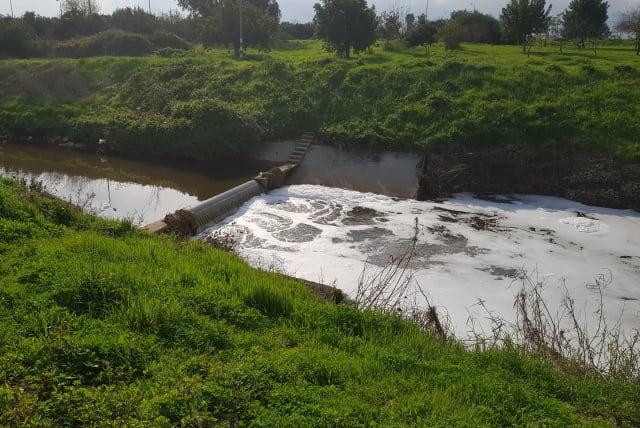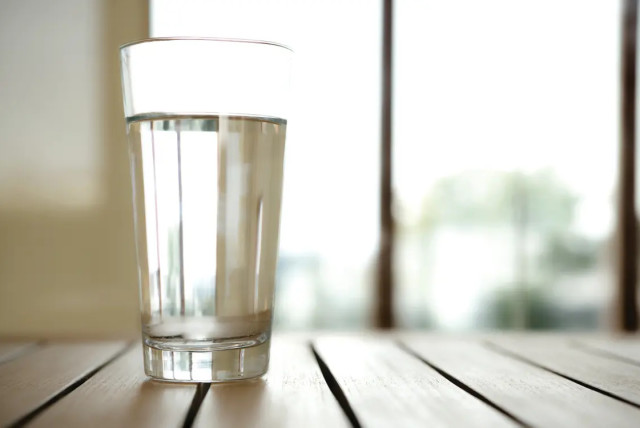Israeli innovation develops method to detect water contamination

Bar-Ilan University researchers develop cost-effective method to detect low concentrations of contaminants and pharmaceutical waste in water.
Medications and contaminants disposed of in the garbage present a growing concern around the world, especially to our drinking water and food.
A new study by researchers at the chemistry department and Institute of Nanotechnology and Advanced Materials at Bar-Ilan University (BIU) in Ramat Gan has resulted in the development of a highly sensitive plasmonic-based detector that specifically targets the detection of harmful piperidine residue in water.
Piperidine, a small potent molecule that serves as a building block in the pharmaceutical and food additive industries; it is also used as a solvent and to make rubber.
It was first discovered in 1850 by the Scottish chemist Thomas Anderson and again two years later, independently by French chemist Auguste Cahours, who named it. Both of them obtained piperidine by reacting piperine with nitric acid.
Ensuring drinking water a food saftey
It poses significant health risks to both humans and animals due to its toxic nature. Detecting even miniscule amounts of piperidine is essential for ensuring drinking water and food safety.
The plasmonic substrate developed at BIU that was made up of triangular cavities milled in a silver thin film and protected by a 5-nanometer layer of silicon dioxide, offers unparalleled sensitivity to piperidine, detecting low concentrations in water, the team said.
Mohamed Hamode, a doctoral student working with Dr. Elad Segal, developed the dime-sized device using a focused ion microscope to drill nanometer-sized holes on a metal surface. Next week, Hamode will present the innovation at an international conference on microscopy taking place in Italy.By programming the beam with a custom-built computer program, Hamode created holes of various shapes that are smaller than the wavelength of visible light and enhance the electrical field on the surface, leading to concentrated light in very small areas. This amplification enables optical phenomena to be significantly increased, allowing for the identification of a low concentration of molecules that were previously undetectable with optical probes.
Due to its confined and enhanced electromagnetic field, the plasmonic substrate offers an efficient alternative to other substrates currently used in Surface Enhanced Raman Spectroscopy (SERS), making possible the use of cost-effective and portable Raman devices that enable quicker and more affordable analysis.
“This study represents a significant advancement in the field of environmental monitoring,” said lead researcher BIU chemistry Prof. Adi Salomon.
“By leveraging nano-patterned metallic surfaces, we’ve have shown that the detection of low concentrations of piperidine in water using affordable optics offers a promising solution for environmental analytical setups, she continued.
The findings of the study, just published in the journal Environmental Science: Nano under the title “Plasmonic-based Raman sensor for ultra-sensitive detection of pharmaceutical waste,” show the potential of plasmonic-based detectors in revolutionizing environmental monitoring, particularly in the detection of pharmaceutical waste and contaminants.
Jerusalem Post Store
`; document.getElementById("linkPremium").innerHTML = cont; var divWithLink = document.getElementById("premium-link"); if (divWithLink !== null && divWithLink !== 'undefined') { divWithLink.style.border = "solid 1px #cb0f3e"; divWithLink.style.textAlign = "center"; divWithLink.style.marginBottom = "15px"; divWithLink.style.marginTop = "15px"; divWithLink.style.width = "100%"; divWithLink.style.backgroundColor = "#122952"; divWithLink.style.color = "#ffffff"; divWithLink.style.lineHeight = "1.5"; } } (function (v, i) { });


